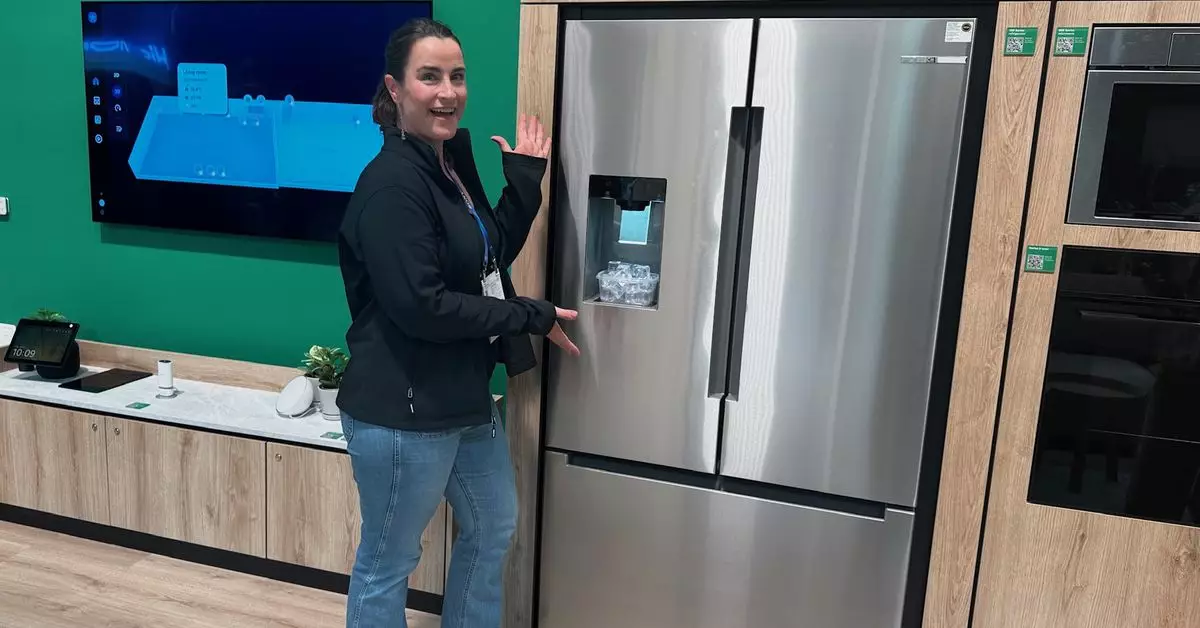In the ever-evolving landscape of smart home technology, innovation is occurring at an exceptionally fast pace. As consumers increasingly seek products that interconnect seamlessly, major appliance manufacturers like Bosch are stepping up their game. This article delves into Bosch’s recent unveiling of its first Matter-enabled appliance, the 100 Series French Door Bottom Mount Refrigerator, and explores what this means for the future of smart kitchen devices.
Matter represents a crucial development in the realm of smart home technology. Strategically spearheaded by renowned giants such as Apple, Amazon, Google, and Samsung, this interoperability standard aims to unify devices across various ecosystems. By providing a common communication protocol, Matter promises to enhance the user experience by enabling devices to work together more effectively. This means that regardless of brand, smart devices can potentially communicate with one another, resulting in a more cohesive smart home experience.
Bosch’s 100 Series Refrigerator is among the first appliances to incorporate Matter, which significantly shapes its utility and appeal. The choice to adopt Matter underscores Bosch’s commitment to remaining competitive in a market that demands user-friendly, secure, and efficient devices. This standard lays the groundwork for enhanced functionalities, such as remote temperature control and real-time notifications about appliance status.
The first model launched in this series, retailing at $2,500, showcases not just Bosch’s advanced engineering skills but its forward-thinking approach to smart appliances. The appliance is equipped with a dedicated chip that allows it to support Matter, setting the stage for future compatibility upgrades. The anticipated firmware update later this year aims to enhance the refrigerator’s features further, such as its energy management capabilities.
One of the more attractive features of the 100 Series is the planned integration with several smart home platforms, starting with Samsung SmartThings and Home Assistant, and a forthcoming addition of Amazon support. This integration opens up a world of possibilities for energy conservation and eco-friendly living, vital components of modern household management.
The transition from cloud reliance to local connections represents a major evolution for smart appliances. Many existing smart fridges already boast features like alerts for an open door and temperature adjustments. However, the adoption of Matter affords a significant advantage by promoting a faster, more secure communication framework. Local connections minimize latency and reduce the chances of privacy breaches—an ongoing concern for many consumers in the digital age.
By leveraging Matter, the 100 Series Refrigerator enhances the user experience by allowing for effective communication between devices without the risk associated with cloud dependence. This is a significant selling point in a market where security and reliability are paramount.
Despite the promising outlook for Bosch’s smart fridge, there are some limitations to consider. Notably, existing Bosch appliances will not receive updates to become Matter-compatible. Bosch’s contention that the risks associated with retrofitting older models are too significant raises questions for consumers invested in earlier technologies. The implication here is clear: while Bosch is making strides forward, some customers may feel left behind.
Moreover, while Matter is a groundbreaking protocol, it’s essential to acknowledge the current restricted support landscape. Presently, only a handful of platforms, such as Samsung SmartThings and Home Assistant, engage in the compatibility dance. The absence of Google Home or Apple Home support at launch could hinder consumer adoption, particularly among those who have heavily invested in specific ecosystems.
Bosch’s investment in Matter reflects an essential pivot in the industry, positioning itself at the forefront of smart home innovation. The potential for interconnectivity with future appliances—ranging from dishwashers to ovens—indicates a shift towards holistic home automation systems where energy, efficiency, and user-friendliness converge.
As technology continues to progress, the introduction of Matter-enabled appliances, including Bosch’s 100 Series Refrigerator, heralds an exciting era for home automation. While challenges remain, the promise of enhanced functionality and interoperability suggests a future where smart homes are not only smarter but also more attuned to our daily lives. This evolution is something consumers will be keenly watching—for both the appliances themselves and the technologies that power them.


Leave a Reply